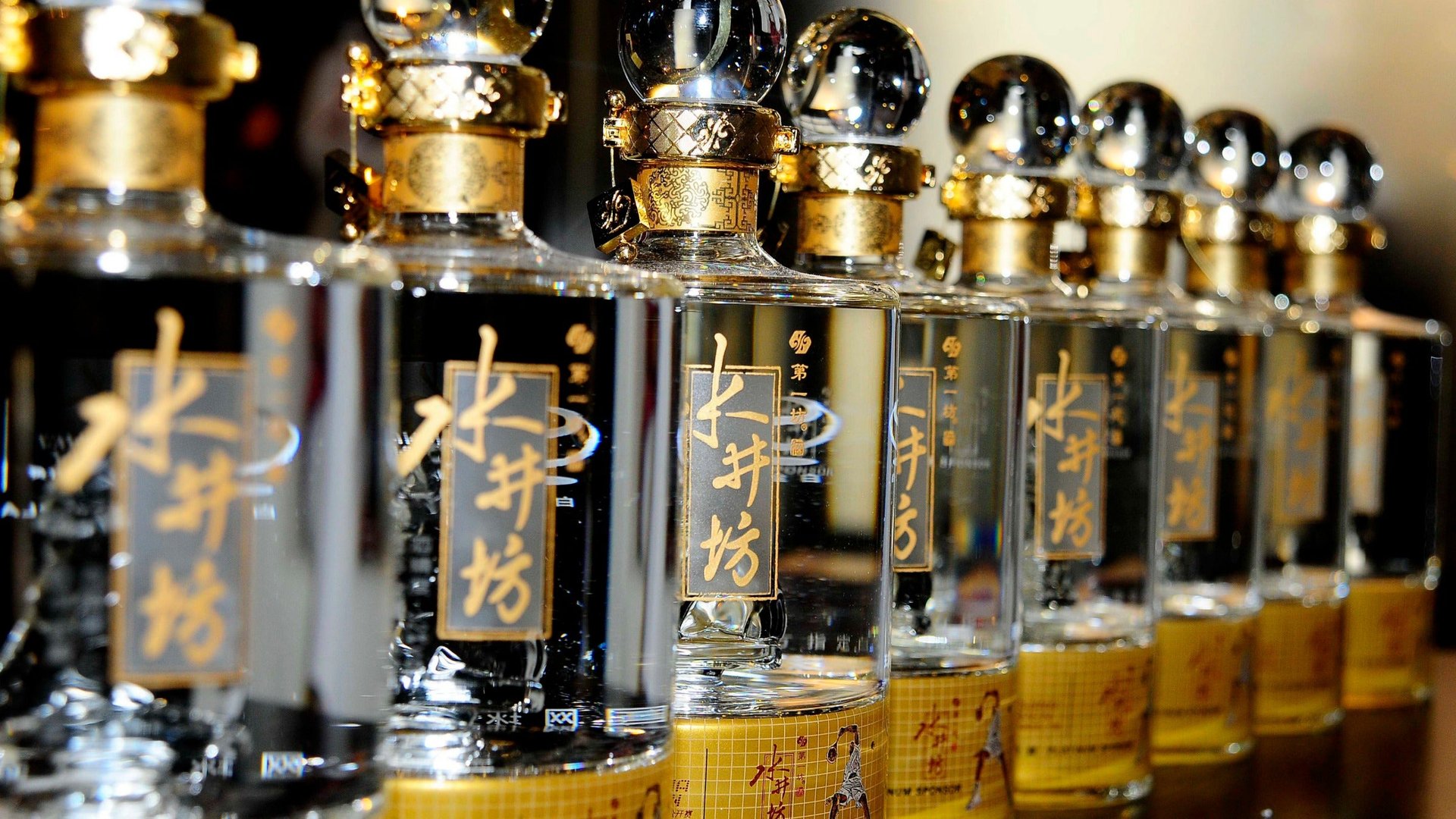The world’s best selling alcohol is finally traveling West
China’s largest liquor company, Kweichow Moutai, just announced its weakest first-half profit growth since 2001. The falling revenue highlights a trend that analysts knew to be true for months: President Xi Jinping’s crackdown on extravagance has hit domestic producers hard.


China’s largest liquor company, Kweichow Moutai, just announced its weakest first-half profit growth since 2001. The falling revenue highlights a trend that analysts knew to be true for months: President Xi Jinping’s crackdown on extravagance has hit domestic producers hard.
Moutai, famous for $300 bottles of the white liquor known as baijiu, which is popular with the politburo, raked in cash at half the pace of the year-earlier period. Meanwhile, the company fell from the fifth most popular brand gifted by Chinese millionaires to 13th, according to a survey by Hurun Report. (It can at least stand proud in the fact that Moutai is the only Chinese brand to make the list.)
But, Moutai and its national rival Wuliangye have hope—in the form of a competitor. London-based beverage behemoth Diageo has doubled down on efforts to expand the baijiu market. Diageo initially invested in the Chinese baijiu brand Shui Jing Fang last year, and in July, the company put down an additional $358 million to become the brand’s sole shareholder.
The company hasn’t been shy about global ambitions to expand a spirit that generated a massive $92 billion last year, making it the best-selling spirit in the world. Gilbert Ghostine, president of Diageo Asia Pacific, says the company’s goal is to “build Shijingfang into the leading international Bai Jiu brand.”
In fact, Diageo already launched baijiu marketing initiatives in London last year and is rolling out Shui Jing Fang in Italy, Qatar, Spain and the United Arab Emirates this year. The company also brought on the brand’s first American general manager, James Rice, who is planning a baijiu launch party in his native Los Angeles this year.
Exports still account for only 10% of Shui Jin Fang’s total sales, but Diageo is banking on its wide-scale marketing efforts to increase that number. More familiarity among worldwide consumers can only benefit other Chinese baijiu makers, who hope that gaining American and European shelf space can make up for the declining sales at home.